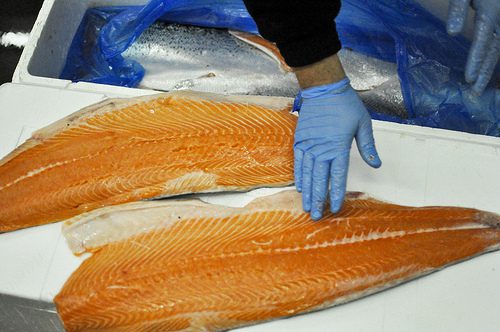Seafood Fraud: Consequences
 Seafood fraud can happen at each step of the supply chain – the restaurant, the distributor, or the processing and packaging phase. Along with ripping off consumers, the consequences of seafood fraud include:
Seafood fraud can happen at each step of the supply chain – the restaurant, the distributor, or the processing and packaging phase. Along with ripping off consumers, the consequences of seafood fraud include:
- Directly threatens human health. Swapping one fish species for another that may be riddled with contaminants, toxins or allergens can make people sick.
- Creates a market for illegal fishing by making it easy to launder illegally caught seafood products through the EU market. This undermines conservation efforts to prevent overfishing and accidental capture of at-risk species and hurts honest fishermen.
- Mislabeling fish makes it difficult for consumers to make eco-friendly choices. Market-driven conservation efforts depend on the consumer’s ability to make an informed purchase of particular species. This effort becomes nearly impossible when fish are mislabeled.
- Misleads consumers about the true availability of seafood and the state of the marine environment. Because mislabeling maintains the appearance of a steady supply of popular fish species despite severe overfishing, the general public is unaware that the species is in serious trouble.
Overfishing continues to plague the world’s oceans, with 87% of fish stocks worldwide fully or overexploited. Despite growing concern about where our food comes from, consumers are frequently served the wrong fish – a completely different species than the one they paid for.


